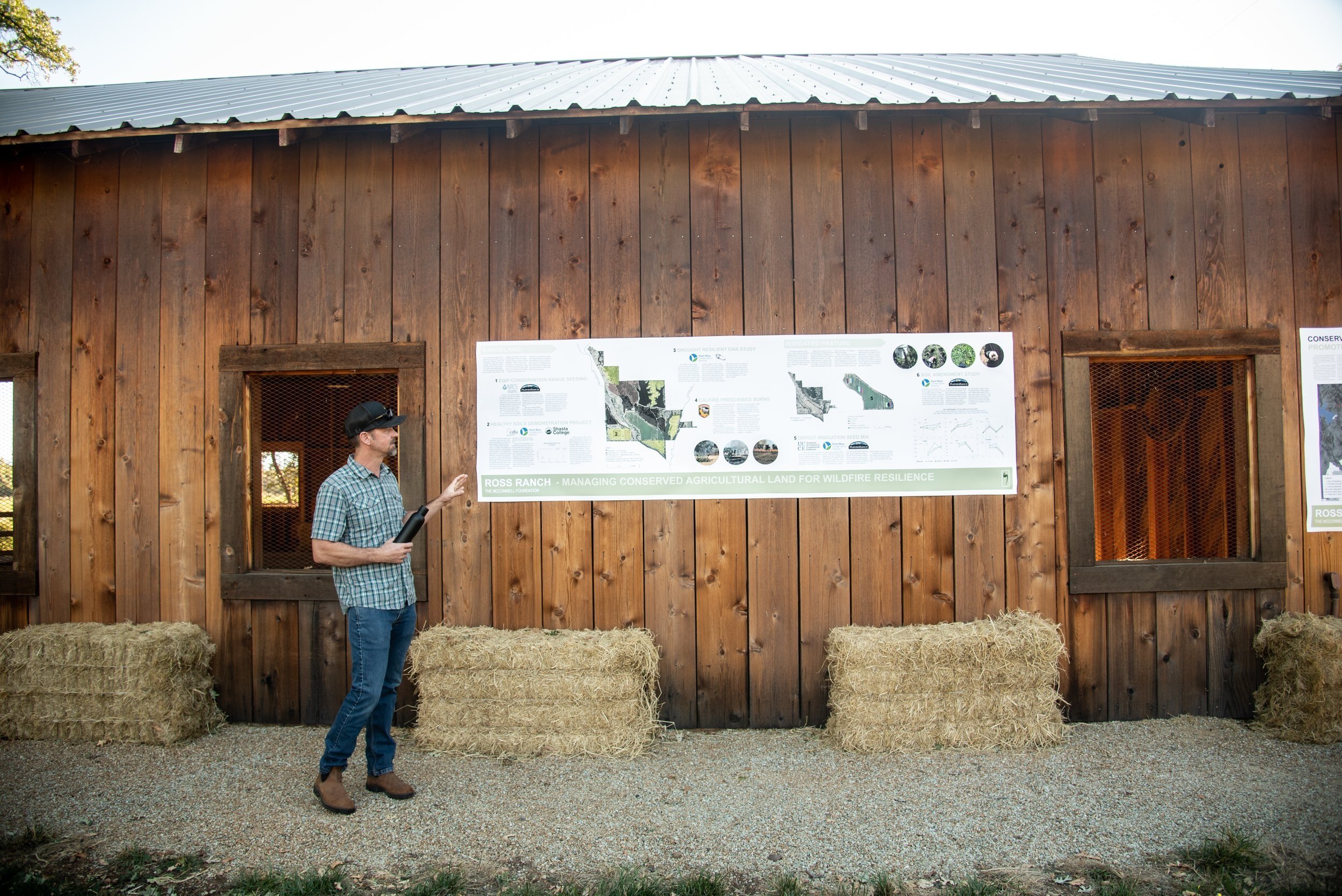Ross Ranch is an 854-acre working ranch that lies within the City of Redding’s sphere of influence, or the identified expansion area for the city. The property is leased to cattle ranchers and beekeepers, with 30 acres used by neighboring Shasta College for cattle grazing. In 2018, the California Strategic Growth Council awarded the Shasta Land Trust an approximately $5.6 million Sustainable Agricultural Lands Conservation Program (SALC) grant to acquire an agricultural conservation easement that permanently protects Ross Ranch from development. Match funding came from Shasta Land Trust donors and from the McConnell Foundation, the owner of the property.
Cattle grazing at Ross Ranch
This conservation easement ensures the protection of agricultural uses of the ranch, as well as the property’s many other beneficial functions. These include habitat protection, wildfire protection, climate resilience, land-based learning, regenerative agriculture, and equitable access to open space for the surrounding community. Sensitive natural communities on the ranch support several special-status species and provide nesting and foraging habitat for over 65 species of birds. During good rainfall years, creeks with a total length of about 2.25 miles provide habitat for salmon spawning and rearing.
By allowing schools, agencies, and nonprofits to access the ranch, the McConnell Foundation is opening up opportunities for research and education. The property serves as a learning laboratory and extension for Shasta College’s agricultural, horticultural, and natural resources programs. Several CAL FIRE prescribed burns have been completed, and a recent cultural burning demonstration was conducted in partnership with the Department of Conservation’s Regional Forest and Fire Capacity Program.
Alex Carter, The McConnell Foundation Director of Land Management speaking about the management of Ross Ranch
Funding from the CDFA Healthy Soils grant program allowed the ranch to be utilized as a carbon sequestration demonstration site in partnership with Point Blue Conservation Science. The group monitors grassland plantings and compost applications onsite for soil health, carbon sequestration, and forage yield.
Point Blue Conservation Science ecologist, Alicia Herrera, spoke to the benefits of the CDFA demonstration project. "It has been a great way to complete several planting practices with proven track records for improving soil carbon, biodiversity, and ecosystem processes. It also has given us a chance to test the efficacy of more novel soil health practices such as applying compost on dry rangeland. So far, we are encouraged by the results we’ve seen at Ross Ranch,” Herrera said. “The protection of agricultural land on the edge of urban boundaries is vitally important for the future of our community,” said Paul Vienneau, Executive Director of Shasta Land Trust. “Thanks to the Strategic Growth Council, [the] Department of Conservation, and the McConnell Foundation, the countless benefits to our local economy, wildlife, and environment present on Ross Ranch will be protected forever.”


